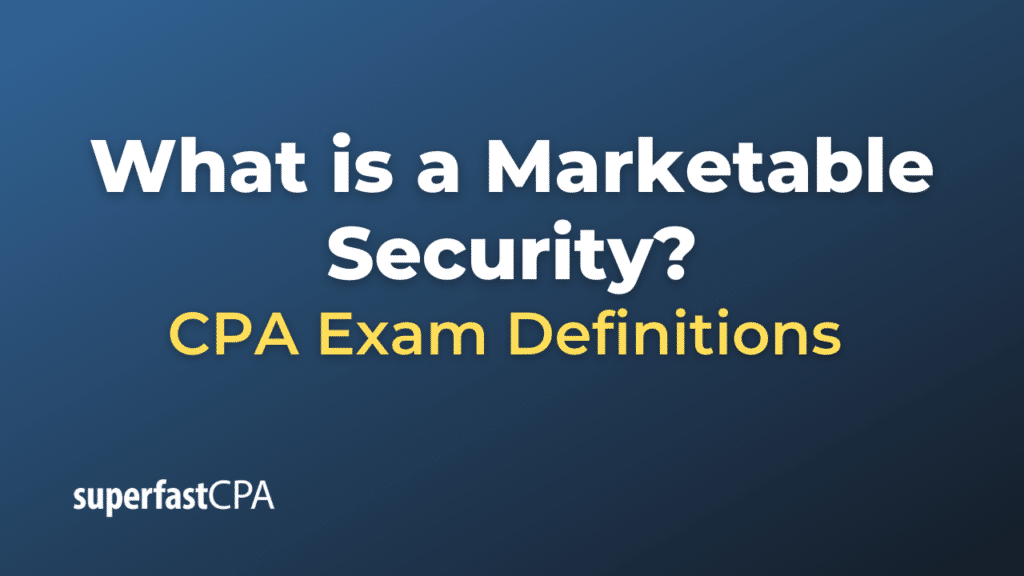Marketable Security
A marketable security is a financial asset that can be easily bought or sold with very little impact on its price because they are highly liquid and have a strong secondary market. Marketable securities are often short-term investments that can be converted into cash typically within one year.
There are several types of marketable securities, including:
- Treasury Bills: These are short-term debt instruments issued by the U.S. government. They are considered very safe investments because they are backed by the full faith and credit of the U.S. government.
- Commercial Paper: This is a short-term unsecured promissory note issued by corporations. It’s typically used for the financing of accounts receivable, inventories, and short-term liabilities.
- Money Market Funds: These are mutual funds that invest in short-term, high-quality, liquid debt securities, such as Treasury bills and commercial paper.
- Marketable Bonds : These are debt securities (corporate or governmental) that are actively traded in the secondary market and can be sold before maturity.
- Stocks: Shares of publicly traded companies are marketable securities because they can be bought or sold on public exchanges.
Marketable securities are often used by companies as a place to invest cash that is not needed for immediate operations. The high liquidity and short maturities of these securities make them a suitable choice for this purpose as they can be easily sold and converted into cash when the need arises.
Example of a Marketable Security
Let’s consider an example of a marketable security:
Let’s say we have a tech company, TechInc, that has performed well in the market and accumulated $2 million in cash. However, they do not plan to use this cash for operations or expansion in the immediate future.
Instead of just holding onto this cash, the financial manager of TechInc decides to invest it in a marketable security, specifically a U.S. Treasury Bill, which is considered one of the safest investments.
So, TechInc buys $2 million worth of U.S. Treasury Bills which have a maturity of 6 months and a yield of 1.5%. This allows the company to earn interest on its idle cash.
In two months, TechInc lands a major contract that will require them to invest $1.5 million into new equipment. Since U.S. Treasury Bills are highly liquid, TechInc can easily sell part of its Treasury Bills in the secondary market to raise the required cash.
In this scenario, the U.S. Treasury Bills served as a marketable security, allowing TechInc to earn some return on its excess cash while maintaining the flexibility to convert the investment back into cash when needed.













